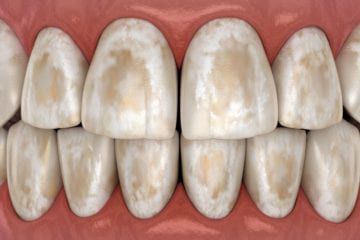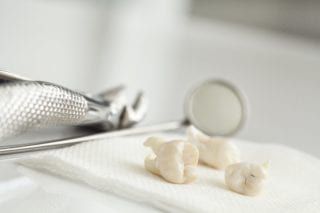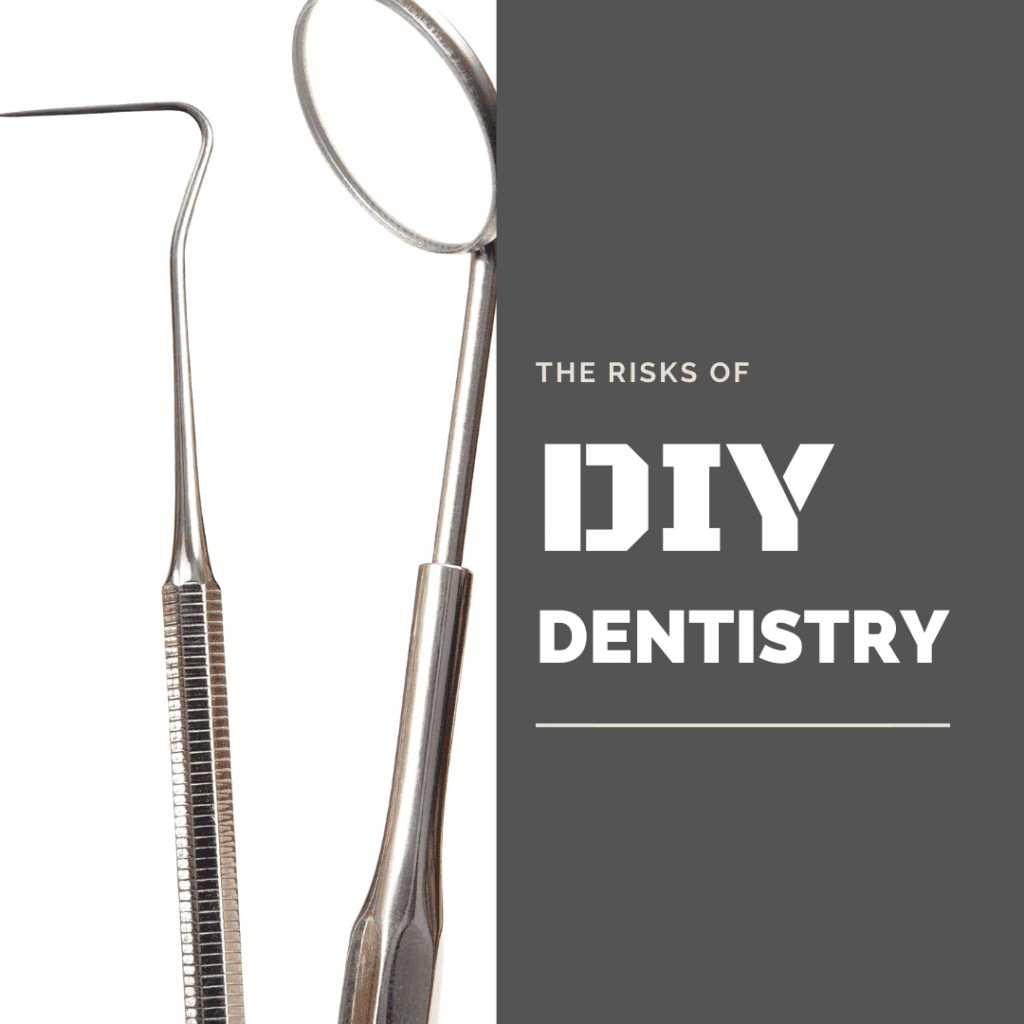During the temporary shutdowns associated with COVID-19, many people were forced to take a DIY approach to many services that were formerly provided to them, such as haircuts and manicures. Even as things slowly return to normal, dentists have still noted a rise in DIY dentistry articles and videos on social media. When you consider the fact that dentists must complete undergraduate studies and an additional four years of dental school, plus two years of specialty study in some cases, it quickly becomes apparent that a DIY approach to dentistry is a bad idea. After all, there is no article or video out there that can squeeze in the knowledge of four years of dental school. To show you how DIY dentistry can affect your oral health, here are some of the most common DIY dental practices and how they can potentially be harmful:
DIY Dental Fillings
Dental fillings are generally composite resin that is placed inside a cavity after the decayed tissue has been removed. In the case of large fillings, other dental materials may also be used. Placing a dental filling is one of the most commonly performed procedures and is a routine practice for dentists. DIY fillings, on the other hand, are not made from dental materials, are not effective, and can cause serious harm. For example, some people use temporary filling materials, which will eventually fall out and allow the decay to continue. Some people may even use materials that are not meant for dental use at all, which has its own set of complications. One patient decided to fill their cavity using automotive adhesive. The damage was so great that the entire tooth needed to be extracted. While this is an extreme example, even attempting to scrape or clean out decayed tissue on your own can cause damage.
DIY Nightguards
Dentists generally prescribe nightguards to patients who regularly grind their teeth at night. Teeth grinding, also known as bruxism, is normally brought on by stress and has become more prevalent in the last year. Unfortunately, bruxism can cause prematurely worn enamel, chipped or cracked teeth, and temporomandibular joint disorder (TMD). While a properly-fitting night guard can prevent these problems, many people opt instead for over the counter versions. There are two main types of over the counter nightguards: those that are prefabricated to one size and those that can be “customized” using the boil and bite method. Both methods fail to achieve the proper fit and bite alignment, which will eventually result in more damage over time. Night Guards that don’t fit properly can cause the teeth to shift, the bite to become misaligned, and increases the risk of TMD.

DIY Whitening
Nowadays, everyone wants to have whiter teeth. Although there are safe professional whitening and over the counter treatments, some people think they can save money by simply doing it themselves. Unfortunately, they usually end up causing irreversible damage to their teeth and gums in the process, which will likely cost them more money in the long run. For starters, many DIY whitening methods advocate for the use of hydrogen peroxide or bleach, which can be extremely hazardous if accidentally ingested. Not to mention that both of these ingredients can erode the enamel and bleach/burn the gums. Ironically, once the enamel is eroded, the teeth will appear more yellow since the dentin will show through.
DIY Tooth Repair
In the unfortunate event that you crack or chip a tooth, you should call your dentist immediately. DIY tooth repair methods are ineffective and can potentially cause more harm than good. For example, one commonly used DIY tooth repair method is using a nail file to file down a chipped tooth. In most cases, all this does is damage or remove the protective enamel layer, which increases the risk of both infection and tooth decay. Depending on how significant the damage is, filing your tooth may cause a pulp infection that will require a root canal. Conversely, your dentist can easily repair damaged teeth using a variety of safer methods.
DIY Decay Prevention
Oil pulling is an ancient practice that swishes oils around the mouth in order to remove microorganisms from the mouth. While oil pulling isn’t necessarily dangerous, there is a debate on its effectiveness. Additionally, oil pulling can be harmful in cases where people use it as a replacement for traditional oral hygiene methods. Oil pulling should only be used in addition to regular brushing, flossing, and dental visits.

DIY Extractions
Out of all the DIY dental procedures out there, DIY tooth extractions are probably the most dangerous. You should never attempt to remove a permanent tooth on your own, no matter how painful or loose it is. Doing so could cause significant trauma to the surrounding structures, infection, and possible damage to the jawbone. Most cases of self-extraction will usually need to be managed with additional oral surgery to prevent further damage.



